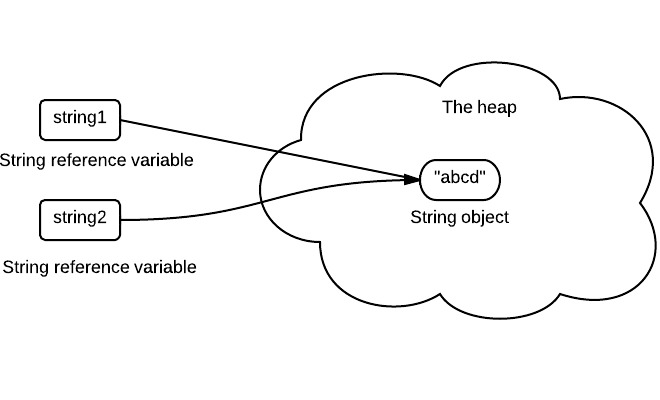Why Are Strings Immutable in Java? Protection and Efficiency Conveniences
Why Are Strings Immutable in Java? Protection and Efficiency Conveniences
Blog Article
Unalterable Strings: A Trick Part in Ensuring Information Uniformity and Reliability
In the world of information management, the value of unalterable strings can not be overstated. The concept of immutable strings transcends simple formality; it is a linchpin in the complicated web of data administration.
The Principle of Unalterable Strings
Immutable strings, an essential concept in shows, describe strings that can not be changed once they are created. In essence, when a string worth is appointed, any type of operation that appears to change the string actually develops a brand-new string. This immutability makes sure information consistency and reliability in applications, as it stops unanticipated changes to the original data.
Advantages in Data Consistency

Information consistency is crucial in numerous elements of software application advancement, including database monitoring, multi-threaded environments, and dispersed systems (Why are strings immutable in Java?). Immutable strings add significantly to achieving this consistency by protecting against information corruption due to concurrent accessibility. In situations where several processes or strings communicate with the very same information all at once, unalterable strings function as a safeguard against race conditions and synchronization concerns
Additionally, the immutability of strings streamlines debugging and testing processes. With immutable strings, developers can trust that once a string is set, it will continue to be unmodified, making it simpler to trace the source of errors and making certain that test instances produce constant outcomes. This dependability in information managing ultimately causes a lot more secure and robust applications.
Executing Immutable Strings
Making certain the immutability of strings requires a thoughtful technique to their execution in software application advancement. When a string object is created, one key strategy is to make string classes in a way that protects against adjustments. By making strings unalterable, designers can boost data consistency and integrity in their applications.
To execute unalterable strings successfully, developers should prefer creating brand-new string objects instead of modifying existing ones. This method makes certain that when a string is assigned a worth, it can not be transformed. Furthermore, any kind of operation that shows up to change the string ought to develop a new string with the preferred adjustments instead of changing the initial.
Additionally, making use of immutable strings can streamline concurrency administration in multi-threaded settings. Since immutable strings can not be altered after creation, they can be safely shared among numerous threads without the danger of information corruption.
Role in Integrity Guarantee
In software application growth, the application of unalterable strings plays an important role in making certain the reliability of data operations. Unalterable strings, as soon as created, can not be customized, making certain that the data they stand for remains regular throughout the application's execution. This immutability residential property offers a level of assurance that the information being processed will not be accidentally transformed, bring about unforeseen results or mistakes in the system.
By integrating immutable strings into software application layout, designers can improve the dependability of their applications by minimizing the risks connected with mutable data - Why are strings immutable in Java?. Unalterable strings help in stopping information corruption or unexpected modifications, which can be specifically vital when taking care of delicate info or when information stability is critical
In addition, making use of immutable strings simplifies concurrent processing, as multiple strings can safely gain access to and share string data without the risk of one thread modifying the material while another is reviewing it. This element adds significantly to the general integrity of the software program system, making sure foreseeable and consistent actions in information dealing with procedures.
Applications and System Combination
The seamless combination of unalterable strings right into different applications and systems is pivotal for guaranteeing robust information consistency and integrity across varied technological atmospheres - Why are strings immutable in Java?. Immutable strings play an important duty in enhancing the honesty of information exchanges and interactions within facility software program ecological communities. By incorporating unalterable strings into applications, developers can alleviate the risks associated with data meddling, unapproved adjustments, and unintended modifications, thus fortifying the general protection stance of the system
Unalterable strings can improve interoperability between disparate systems by providing a standardized style for data depiction, making it possible for extra efficient information processing and exchange protocols across interconnected her latest blog platforms. By embracing immutable strings in applications and system integration processes, organizations can fortify their click for more data infrastructure and maintain the integrity and uniformity of their info possessions.
Final Thought
Finally, immutable strings play an essential role in keeping information consistency and integrity in numerous applications and system combinations. By guaranteeing that strings can not be changed when created, the honesty of data is preserved, decreasing the danger of mistakes and inconsistencies. Implementing immutable strings can dramatically enhance the integrity of systems, eventually resulting in even more accurate and reputable data handling.

Report this page